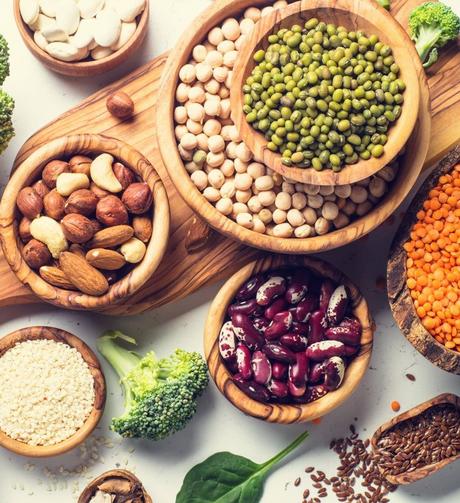
When following a vegan diet, the question of protein is often focused on. Protein is a crucial building block of humans which is necessary for it to function optimally. And one of the major sources of protein is meat.
While you can't eat meat on a vegan diet, you can still get the necessary amount of protein through numerous vegan sources. Here's an overview of the best sources of vegan proteins and how a well-balanced vegan meal can help you keep a healthy life style.
What Is Vegan Protein?
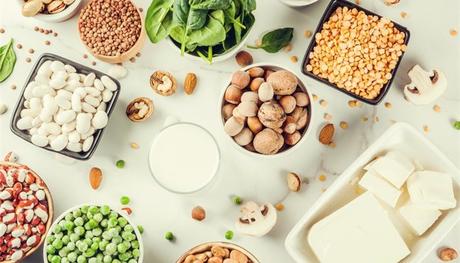
Vegan protein is a protein derived from plant-based sources. The most common sources of vegan protein are legumes, grains, nuts, and fruits and vegetables. A person following a vegan or vegetarian diet should ideally pay more attention to their diet to ensure they include protein-rich foods.
How Much Vegan Protein Should I Eat?
The recommended dietary allowance for protein is 0.8 grams on average per kilogram of a person's body weight.
However, this number may differ depending on a person's age, weight, height, muscle mass level, and fitness goal.
What Are The Five Best Vegan Protein Sources?
#1. Seitan
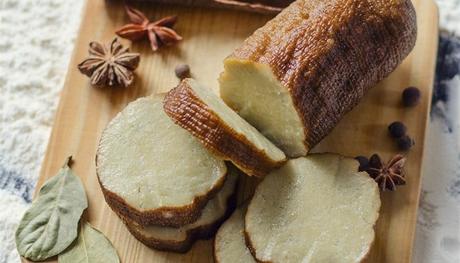
A plant-based meat alternative composed of wheat gluten, seitan is often referred to as wheat gluten or wheat meat. It looks like real meat, especially in terms of its texture, and is easily mistaken for chicken. Seitan also has high protein content, with 100 grams of seitan typically containing 75 grams of protein.
Moreover, while seitan is high in calcium, iron, selenium, and phosphorus, it has low carbohydrate and fat content, making it a healthy protein source.
However, seitan is low in lysine, an amino acid required in your daily diet. So, make sure you compensate with other lysine-rich vegan foods such as beans and lentils.
#2. Quinoa
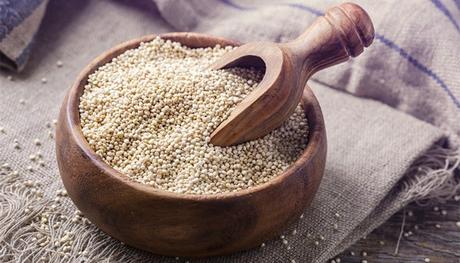
Another option that you can look into for vegan protein is quinoa. This easy-to-prepare, gluten-free grain is best known for its slightly nutty flavor that compliments most dishes.
The grain is not only a go-to for those who follow a vegan diet but also for those dealing with celiac disease as it contains no gluten.
A single cup of quinoa has about 10 grams of protein and is packed with all the amino acids you need. This anti-oxidant is also rich in lysine and has anti-inflammatory and antibacterial properties.
#3. Tofu And Tempeh
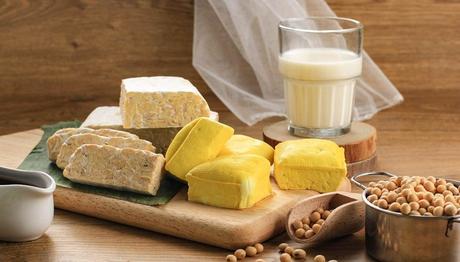
Staple among vegans, these soy-based products are also rich sources of protein. Every 35 grams of tofu contain 8 grams of protein, while 85 grams of tempeh have 11 grams of protein.
You can also rely on tofu and tempeh for calcium, selenium, and manganese. These soy-based products are incredibly versatile and can be added to stir-fries, salads, as well as one-pot menus.
#4. Hemp Seeds
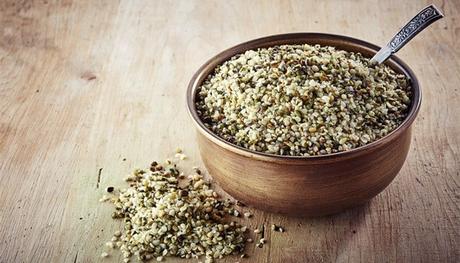
Hemp seeds are the edible fruits of the Cannabis sativa plant, and they do contain small traces of THC. In 100 grams of these tiny seeds, you get 32 grams of protein.
Apart from its rich protein content, hemp seeds also contain omega-3 fatty acids, selenium, iron, magnesium, calcium, and zinc.
The nutritious hemp seeds have a nutty taste that can add a lot of flavor to your dishes. You can sprinkle them on your salads and yogurts or add them as toppings to your smoothies, energy bars, and granola.
#5. Chia Seeds
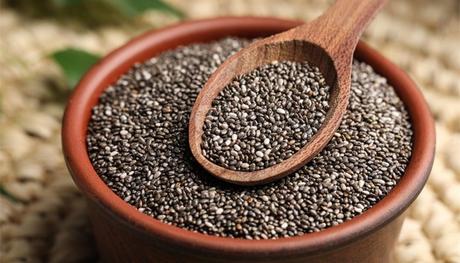
Chia seeds are exciting add-ons to your menu. The dietary fibers of the seeds absorb water or any liquid they are added to, creating a jelly-like texture. Chia seeds are packed with protein, vitamin B, calcium, polyunsaturated fatty acids, potassium, and phosphorus. You get 17 grams of protein in 100 grams of chia seeds.
You can incorporate chia seeds in almost everything, but they make for a wonderful addition to desserts, salads, puddings, oatmeal, and other baked goods. You may even consider adding chia seeds to plain for a nutritious boost. Chia seeds are not only great protein sources but also an effective egg substitute.
How To Get Enough Protein For Vegans: 5 Tips
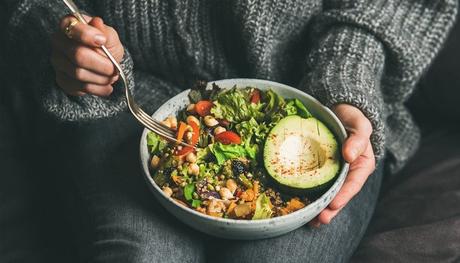
#1. Start your day right by consuming a good amount of protein during breakfast. Oatmeal, quinoa porridge, tofu scramble, and banana pancakes are all protein-rich meals.
#2. Turn to smoothies to boost your protein intake. Incorporate your preferred vegan protein powder, then use soy milk and your favorite fruits for a delicious, healthy drink.
#3. Consider switching out rice for protein-rich grains like spelt, Kamut, quinoa, and buckwheat to get more protein in your diet.
#4. Packed with protein, beans are your new best friend. You can add them to various cuisines and recipes including pasta, salads, and even on your baked potatoes.
#5. Iceberg, romaine, and spinach are all good, but kale is better when making your salads and burgers. Kale has more protein and is a superfood, thanks to its high content of vitamins A, B6, C, and K, calcium, copper, manganese, and potassium.
3 Vegan Protein Recipes
Vegan protein recipes need not be complicated, but you do need to put more thought into choosing your ingredients. Here are three vegan protein recipes to get you started.
Perfect for an after-gym snack or even a sweet breakfast, these brownies are made with protein-rich beans, chia seeds, and quinoa. They are great for your health and taste incredible.
Start your day right with these savory pancakes. Putting a healthy, protein-rich spin on your regular pancakes, these chickpea flour pancakes are egg-free, dairy-free, gluten-free, and 100% vegan.
This meal hits the spot when you are craving Asian cuisine. It is a filling and delicious protein-packed dish that you can whip up for a quick weeknight meal.
What Are The Benefits And Risks Of A Vegan Diet?
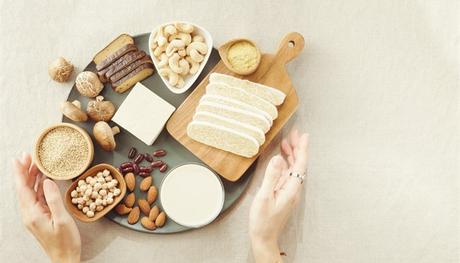
If you are considering switching or trying a vegan diet, it is important to be informed about nutrition as following a vegan diet has its own set of good and bad. Let's take a look at some of its major benefits and drawbacks.
Benefits
#1. A vegan diet is good for your heart health. It can help significantly lower your risk of hypertension and stroke, especially if you increase your whole grain intake and load up on fruits and vegetables.
#2. It may help you reduce weight as most plant-based foods are high in fiber and complex carbs, keeping you fuller for longer and reducing unnecessary snacking.
#3. A vegan diet can be very helpful for managing both type 1 and type 2 diabetes. Typical vegan foods like whole grains, fruits, and vegetables offer various nutritional benefits while helping balance insulin activity.
#4. A healthy vegan diet offers various antioxidants, polyphenols, and phytochemicals that are known to slow the development of Alzheimer's disease and can even reverse and control cognitive decline.
#5. A vegan diet is, of course, more environmentally sustainable and makes you more aware and mindful of your food habits.
Risks
#1. Legumes are extremely rich in antinutrients like phytates and lectins that can increase your chances of developing a leaky gut. Thankfully, you can counteract this by increasing your natural probiotics intake through tempeh, fermented pickles, or sauerkraut.
#2. A vegan diet may cause vitamin B12 deficiency as the vitamin can only be found in animal foods. It's important to take Vitamin B12 supplements to prevent this issue.
#3. If you're not mindful of your diet, a vegan diet can actually cause more health problems as it can make you deficient in certain nutrients.
#4. A vegan is not the most sustainable diet for everyone as it may interfere with existing medical issues.
#5. It is not the easiest diet to follow and requires one to be diligent about their food choices.
Final Thoughts
Getting your daily vegan protein fix should not be a challenge if you just pay attention to your overall food habits. Protein deficiencies are rare, and plant protein is easily accessible. With a diverse and nutritious vegan diet, getting your recommended protein intake should be no problem at all!
